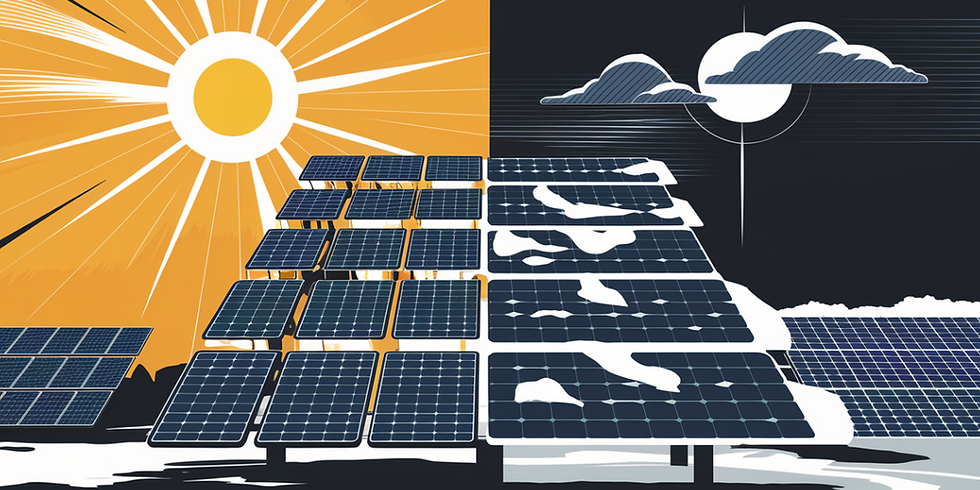
Solar panels are an increasingly popular choice for homeowners and businesses looking to reduce their carbon footprint and energy costs. Despite their many benefits, the adoption of solar energy comes with its own set of challenges. In this blog, we’ll explore the common challenges encountered with solar panels and weigh them against the significant advantages they offer.
Common Challenges with Solar Panels
1. Initial Installation Costs
Challenge:
The upfront cost of purchasing and installing solar panels can be high. This includes the price of the panels, inverters, mounting hardware, and installation labor.
Explanation:
For many, the initial investment can be a barrier to entry. Even with the potential for long-term savings, the immediate financial outlay can be daunting.
2. Weather and Location Dependence
Challenge:
The efficiency of solar panels depends on geographic location and weather conditions. Regions with less sunlight or frequent cloudy days may not produce as much solar energy.
Explanation:
Solar panels are most effective in sunny locations. In areas with less sun exposure, the energy output might not meet expectations, requiring a more extensive setup to achieve desired energy levels.
3. Space Requirements
Challenge:
Solar panels require significant space for installation. Roof-mounted panels need ample, unobstructed roof space, while ground-mounted systems require clear land.
Explanation:
Not every property has the necessary space to install enough panels to meet energy needs. This can be a particular issue for urban areas or properties with limited roof or land space.
4. Energy Storage
Challenge:
Solar energy production is intermittent, with peak production during the day and none at night. Efficient energy storage solutions like batteries are needed to ensure a constant power supply.
Explanation:
Current battery technology can be expensive and may not always provide enough storage capacity. Without adequate storage, reliance on grid power during non-productive periods remains necessary.
5. Maintenance and Repairs
Challenge:
Solar panels require regular maintenance to ensure optimal performance. Dust, debris, and weather conditions can affect their efficiency.
Explanation:
While solar panels are relatively low-maintenance, they still require periodic cleaning and inspection. Repairs, although infrequent, can also be costly and need professional attention.
Significant Benefits of Solar Panels
1. Cost Savings
Benefit:
Solar panels can significantly reduce or even eliminate electricity bills. Over time, the savings can offset the initial installation costs.
Explanation:
By generating your own electricity, you reduce your reliance on utility companies. This can lead to substantial financial savings, particularly in areas with high energy costs.
2. Environmental Impact
Benefit:
Solar energy is a clean, renewable resource that reduces greenhouse gas emissions and dependence on fossil fuels.
Explanation:
Switching to solar energy helps decrease your carbon footprint, contributing to a more sustainable and eco-friendly environment.
3. Energy Independence
Benefit:
Solar panels provide a degree of energy independence, reducing reliance on the grid and protecting against energy price fluctuations.
Explanation:
With solar panels, you generate your own power, which can protect you from rising energy costs and supply disruptions.
4. Increase in Property Value
Benefit:
Homes equipped with solar panels typically have higher property values and can sell faster than those without.
Explanation:
Buyers are often willing to pay a premium for homes with lower utility bills and environmentally friendly features.
5. Incentives and Rebates
Benefit:
Many governments offer financial incentives, tax credits, and rebates to encourage the adoption of solar energy.
Explanation:
These incentives can significantly reduce the net cost of installing solar panels, making them a more attractive investment.
Conclusion
While the journey to adopting solar energy involves overcoming several challenges, the long-term benefits make it a worthwhile endeavor. The high initial costs, dependence on location and weather, space requirements, need for energy storage, and maintenance are all manageable hurdles. The significant advantages of cost savings, environmental impact, energy independence, increased property value, and financial incentives highlight why solar energy is an excellent investment for the future. As technology continues to advance and more people embrace renewable energy, the challenges associated with solar panels are likely to diminish, making the transition to a sustainable future even smoother.
#solarjourney #solarliving #solar #solarpanels #solarchallenges #energystorage #costsavings #solarenergy #sustainablefuture

Comments